Iran Press/ Iran News: Every year, people in different parts of Iran hold rituals to commemorate Muharram's mourning season gloriously in public. The commemoration of the battle of Karbala on the day of Ashura (10th day of Muharram) and the epic passion and courage of Imam Hussain (AS) and his 72 loyal companions who were all martyred (in 680 CE) is annually honored by Iranians.
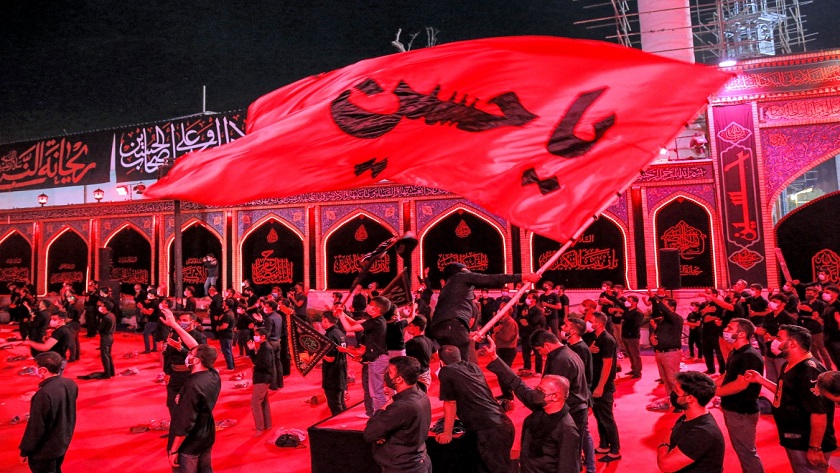 Iranian greatly revere Imam Hussain AS
Iranian greatly revere Imam Hussain AS
Muharram's History in Iran
The history of Iran starts with the foundation of ancient civilizations the arrival of Islam ended its era and took history to a new phase of the Islamic part. The Shia identity of Islam is a bold particularity of Iran that dates back from the 16th century, formed around a significant event known as The Battle of Karbala which took place in the 7th century.
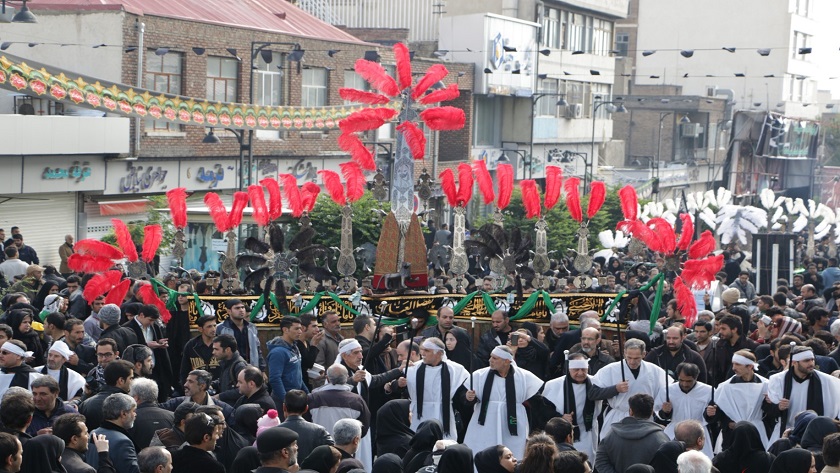 Mourning ceremony in Tehran's grand Bazzar
Mourning ceremony in Tehran's grand Bazzar
Every single year, as the early days of the first lunar month approach, people head to the streets, wearing black and commemorating what happened to Hussain ibn Ali, grandson of the Prophet Muhammad, and his family and 72 followers in the Battle of Karbala. Muharram and Ashura, the 10th day of Muharram, are the most significant events in Iran. Here’s a brief history of what you need to know.
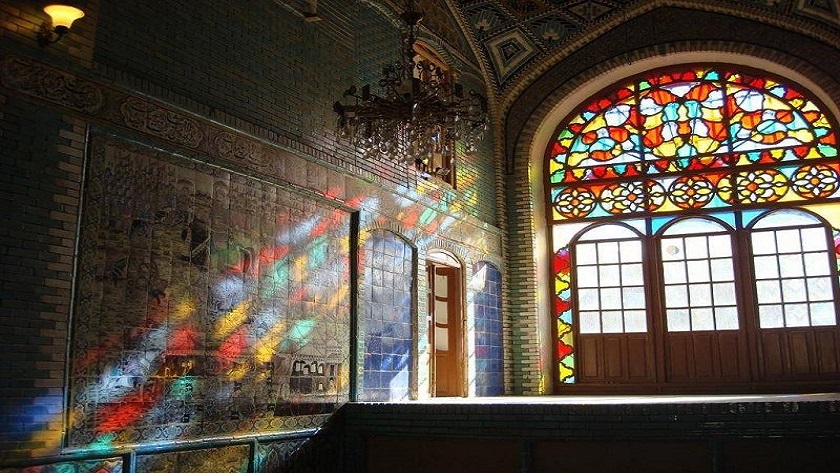 Tekiye Moaven Al Molk in Kermanshah; a place for Muharram mourning built in the Qajar era
Tekiye Moaven Al Molk in Kermanshah; a place for Muharram mourning built in the Qajar era
Muharram's rituals
Ta’azieh: A main performance during the first ten days of Muharram and on Ashura in specific, is a traditional memorial service that is quite common and named “Ta’azieh”. It is the representation of the battle of Karbala in which amateur actors and common people play a role without memorizing their script.
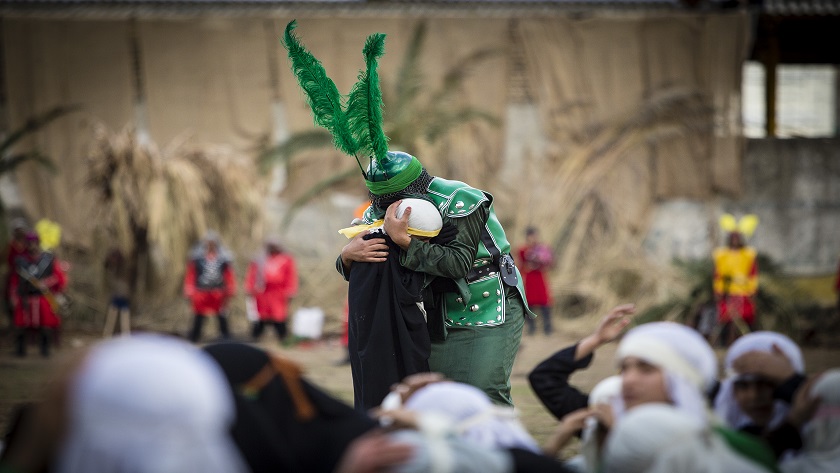 Ta'zieh
Ta'zieh
Nazri: One of the rituals of Muharram is distributing free food (Nazri) and drinks in the streets among mourning groups; It is widely believed among Muslims that the food cooked for Imam Hussein contains a spiritual value.
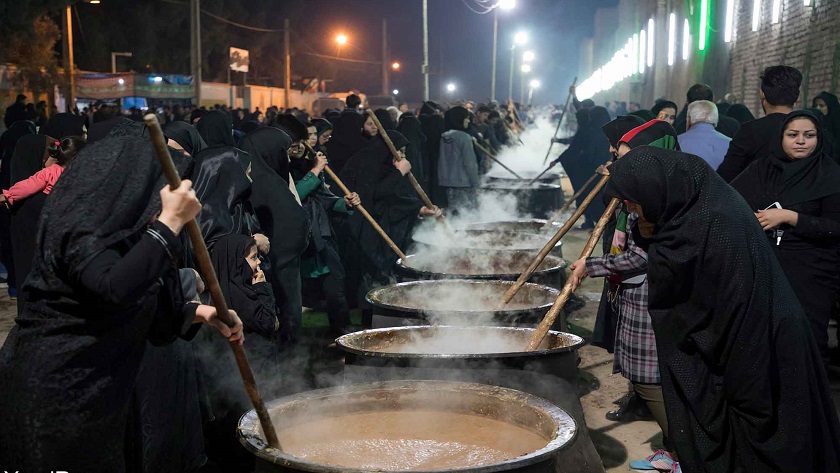 Preparing Nazri for Ashura, Tasua
Preparing Nazri for Ashura, Tasua
Nakhl Gardani: One of the Muharram mourning rituals, which is held in Yazd annually is named Nakhl Gardani. Yazdi people prepare the renowned ancient Nakhl, a wooden structure resembling a bridal pavilion and decorated with colorful silk shawls, precious fabric, mirrors, and lanterns, and lift it and carry it across the city.
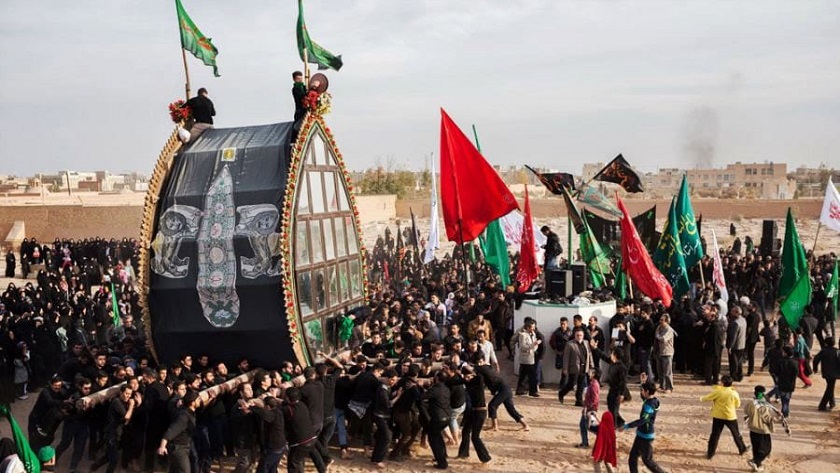 Nakhl Gardani
Nakhl Gardani
Tasht-Gozari (the Basin of Water): The city of Ardabil is famous for its unique mourning ceremony called Tasht-Gozari. In this ceremony, a big basin of bronze or copper that is full of water moves around the mosques or praying halls while it’s on the shoulders of the grieving men.
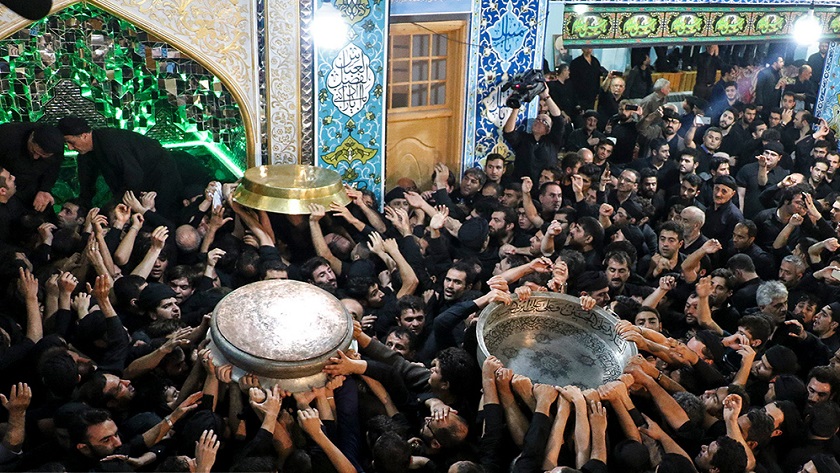 The Basin of the Water ceremony
The Basin of the Water ceremony
Everyone gets the chance to drink a little bit of water from it. This ceremony is among one of the most ancient ones in Iran and refers to the difficulties Imam Hussain and his followers had been through while they were deprived of water.
Muharram cultural significance
The core meaning of Muharram is beyond such mere bereavement and commemoration of the past. Karbala was an actual and metaphorical venue where the Truth confronted the Lie, where justice spoke vibrant and audible in the face of prejudice and where courage, passion and devotion preceded attachment, worldliness and obstinacy.
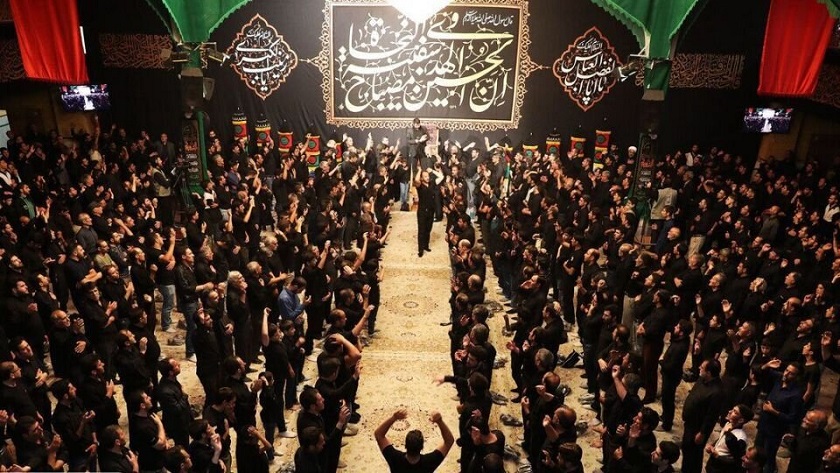 Imam Hussain's mourning ceremony carries deep meaning
Imam Hussain's mourning ceremony carries deep meaning
The Karbals saga is narrated to tell us that compared to the Pyrrhic and momentary victory of injustice, integrity and honesty will always stand the test of time as today the life of Imam Hussein (AS) is honored by millions across the world while the account of his enemies is nearly lost in oblivion. The story also lives to tell us that the majority is not always right. Even if the army of Truth is small in number, it still is magnanimous in what it stands for.
Read More:
Russian Muslims observe Ashura mourning rituals
Millions of Shia pilgrims gather in Karbala on Ashura
Ashura night mourning ceremony held in Bosnia
Ashkan Salehian

